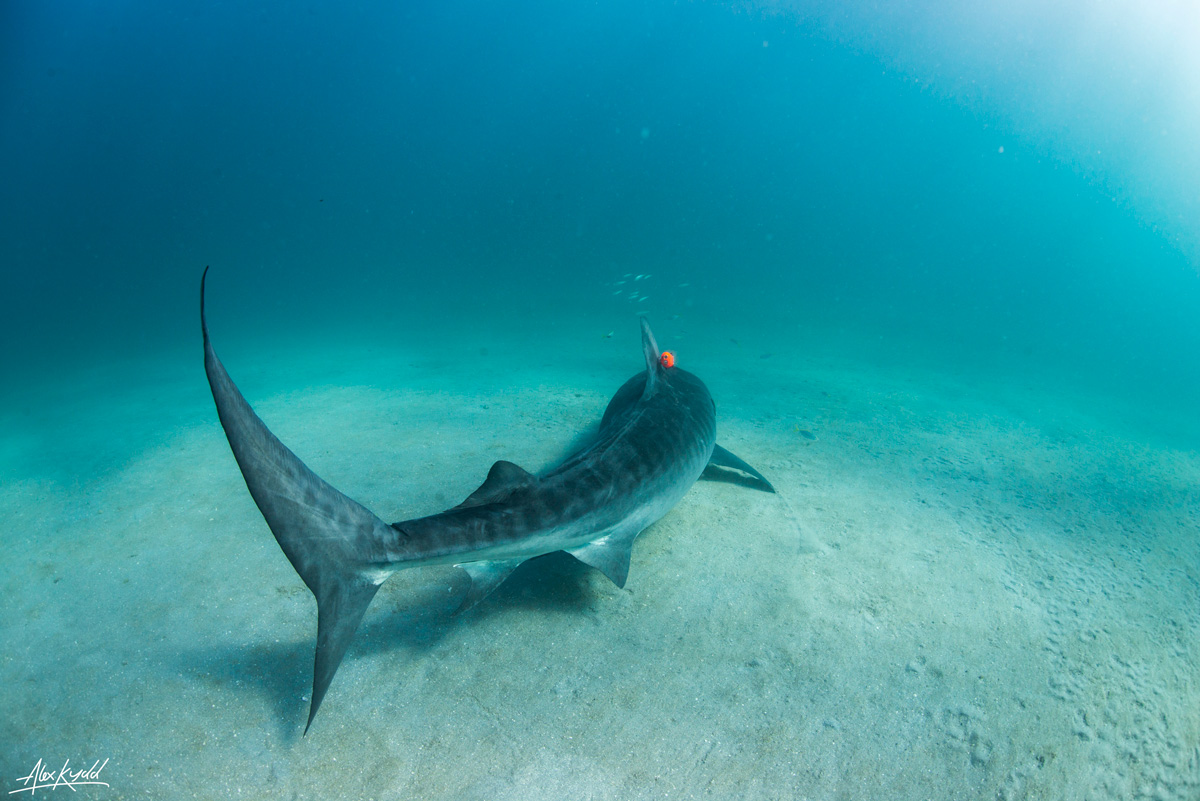
Global S&T Development Trend Analysis Platform of Resources and Environment
| Tiger sharks revealed as lazy predators | |
| admin | |
| 2019-05-17 | |
| 发布年 | 2019 |
| 语种 | 英语 |
| 国家 | 澳大利亚 |
| 领域 | 资源环境 |
| 正文(英文) |
One of the ocean’s top predators – the tiger shark - has been revealed as a relaxed and sometimes lazy hunter by scientists studying their behaviour. Researchers from the Australian Institute of Marine Science (AIMS) and Murdoch University’s Harry Butler Institute attached specialist tags which combined cameras with motion and environmental sensors, to 27 tiger sharks in the Ningaloo Reef off the coast of Western Australia. Collecting 60 hours of footage, the tags revealed the 3D movements of the sharks in relation to their prey, showing a number of target species including turtles, large fish and other sharks performing escape manoeuvres when a tiger shark showed interest. AIMS PhD graduate Dr Samantha Andrzejaczek said tiger sharks were surprisingly lazy predators. “Our tagged sharks just continued on their courses without attempting to predate on the alert individual even if they were right in front of them,” said Dr Andrzejaczek, a lead author on a research paper released today. “We found the sharks were more likely to use stealth to sneak up on their prey.” AIMS senior researcher and shark expert Dr Mark Meekan said the cameras they attached to the sharks gave them an unprecedented view of the role of tiger sharks in coral reef environments. “We can begin to understand not just what the animals are eating, but how they alter the behaviours of the prey around them and how this may impact the coral reef,” Dr Meekan said. “As we come up with strategies to manage and conserve these systems into the future, we need to understand how they are controlled from the top down, meaning we need to understand how these top predators are using these reefs.” Dr Adrian Gleiss of Murdoch University’s Harry Butler Institute compared tiger sharks to lions. “They don’t waste energy stalking prey that are already aware of them and can easily escape,” Dr Gleiss said. “These sharks minimise energy output and chances of success by sneaking up on unsuspecting turtles and large fish.”
The tags revealed the tiger sharks frequently hunted in the shallow sandflat habitats of Ningaloo Reef. Clamped to the dorsal fins of the sharks by hand, the tags automatically detached after 24 to 48 hours. The floating tags were tracked down using a radio antenna, and the data downloaded, providing the researchers with a day or more in the life of the shark. The project was conducted by scientists from the Australian Institute of Marine Science, Murdoch University, the University of Western Australia and Stanford University in California. The research paper “Biologging Tags Reveal Links Between Fine-Scale Horizontal and Vertical Movement Behaviors in Tiger Sharks” was published in Frontiers in Marine Science. |
| URL | 查看原文 |
| 来源平台 | Australian Institute of Marine Science |
| 文献类型 | 新闻 |
| 条目标识符 | http://119.78.100.173/C666/handle/2XK7JSWQ/233008 |
| 专题 | 资源环境科学 |
| 推荐引用方式 GB/T 7714 | admin. Tiger sharks revealed as lazy predators. 2019. |
| 条目包含的文件 | 条目无相关文件。 | |||||
| 个性服务 |
| 推荐该条目 |
| 保存到收藏夹 |
| 查看访问统计 |
| 导出为Endnote文件 |
| 谷歌学术 |
| 谷歌学术中相似的文章 |
| [admin]的文章 |
| 百度学术 |
| 百度学术中相似的文章 |
| [admin]的文章 |
| 必应学术 |
| 必应学术中相似的文章 |
| [admin]的文章 |
| 相关权益政策 |
| 暂无数据 |
| 收藏/分享 |
除非特别说明,本系统中所有内容都受版权保护,并保留所有权利。
修改评论